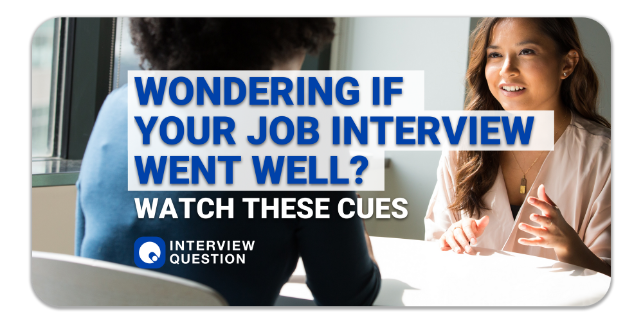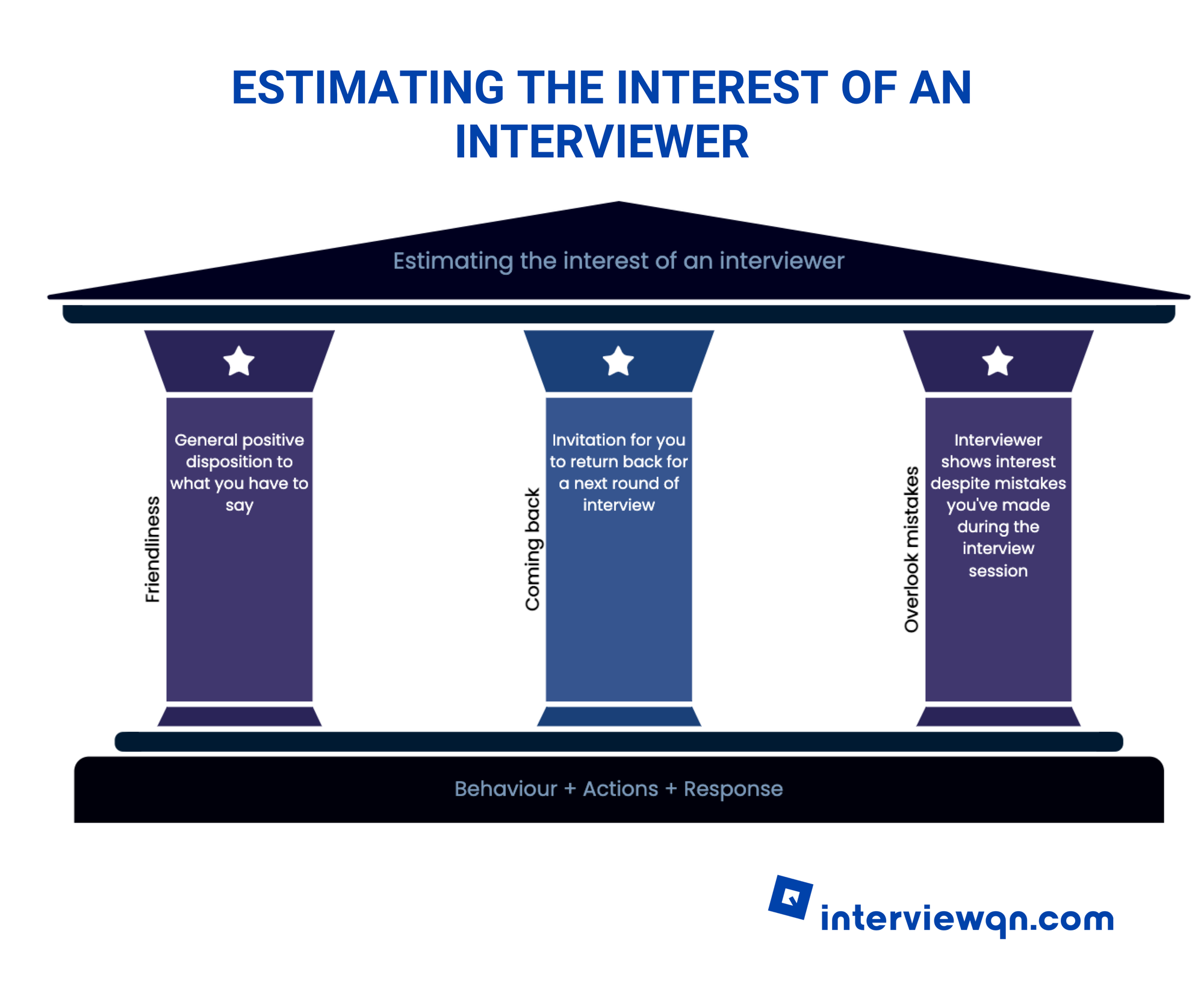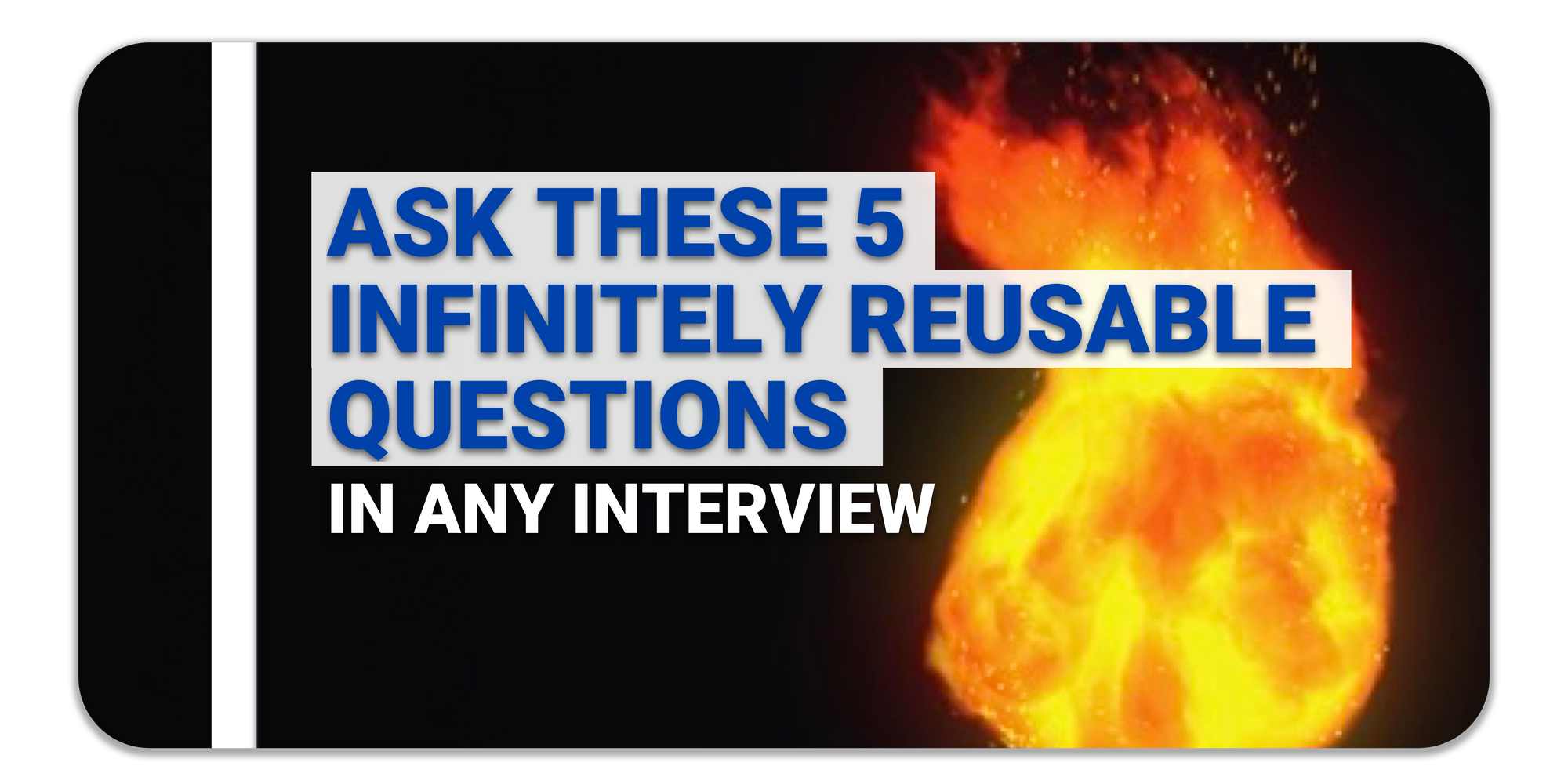Wondering if a job interview went well? Watch for these cues
After a job interview, it can be tough to tell if you did well or not. Here are some cues that may give you an idea of how the interviewer felt.

Have you ever left a job interview feeling confident that it went well, only to find out later that you didn't get the job? Or, on the flip side, have you ever felt like the interview went badly but were surprised when you were offered the job?
If you're wondering if a job interview went well, there are some cues you can watch for.
How to tell if your job interview went well
You can usually tell if a job interview went well by the way the interviewer treats you.
Pay attention to both verbal and nonverbal cues from the interviewer during and after the meeting. These clues can give you a good idea of whether or not they're interested in hiring you.
Estimate if interviewer has a continued interest in you

If they are friendly and interested in what you have to say, then it is likely that they liked you and thought you were qualified for the position. You can see this from how they react when you ask them questions during the Q&A segment.
- Do they want to continue to talk to you, respond in a way that shows you are high up on their expectation scale? Or do they just want to end the meeting as fast as possible because you don't seem like the ideal candidate for them?
- Do they criticise the questions you ask as an interviewee as poorly phrased, overly general or reused questions? Or are they willing to clarify your doubts to allow you to feel more comfortable in being employed by their organisation?
- Are they frank and honest in their responses? Can they explain why the vacancy is available; Is this a brand new position, or did someone leave recently? A straightforward response can show vulnerability in their own organisation, so if the interviewer is willing to divulge these information, then your alignment to their candidate expectations may be so in-sync that they are willing to take the risk.

At times, the interviewer may mention a second or subsequent round interview where he invites and gives you the chance to meet more of the team or company leaders - in this situation, you can be certain that your application is here to stay.
Another good sign is if there is sustained interest despite mistakes you've made during the interview session. Sometimes, it is unavoidable you feel nervous or stutter during the meeting. However, if the interviewer looks past this and continues asking follow-up questions or wants to know more about your experience, then there is a good chance that the he or she is still interested in your application.
If they seem distracted or disinterested, however, it probably means that they did not think you were a good fit for the job.
Positive behaviour of the interviewer means your interview went well
If your job interview went well, the interviewer behaviour may be reflective of the following:
- Maintain eye contact with you throughout the conversation
- Nod their head and smile while you are talking
- Ask thoughtful questions about your experience and qualifications
- Seem engaged in what you are saying, demonstrated by subtle head-tilt motions, sparkling of eyes, sustained eye contact and shows of eagerness
- Give you a firm handshake at the end of the interview
These above behaviours are positive indicators that a candidate performed well in the interview.
Interviewer shows concerned on your notice period and readiness to start
An interviewer who is keen to get an applicant through the hiring stage may push HR to employ this person as quickly as possible.
As the applicant / candidate could have existing employment, the interviewing team would likely enquire more about the applicant's length of notice period, resignation requirements and how soon the applicant is willing to start working.
The eagerness of an employer is a good sign for the candidate.
In some cases, the employer may even be afraid that a strong candidate be snatched up an engaged by a competitor. And if the interviewing employer is aware that a strong, suitable applicant is already serving notice, then the HR department could even expedite the hiring process by sending out an offer for the applicant's consideration on the same day after the interview concludes.
Some junior HR business partners may over-reach and ask if you have already attended or responded to an exit interview in your current workplace. These are all good signs.
On hearing cues of such concerns about how a potential employer wants to understand the detailed availability and duration of your notice period, applicants can expect a good grading of their interview performance. In most cases, applicants would not have to wait long before the next round interview is scheduled or a job offer is rolled out.
Conclusion
Overall, if you walked away from your interview with a positive feeling and the interviewer seemed just as enthusiastic about you as you were about the position, then chances are it went well.
Some points to reiterate - if your interviewer was engaged in the conversation, made consistent eye contact, and asked follow up questions, then your interview likely went well. If you left the interview feeling confident and optimistic, then chances are good that you made a positive impression.
Remember to follow up with a thank-you note regardless of how you think the interview went.

